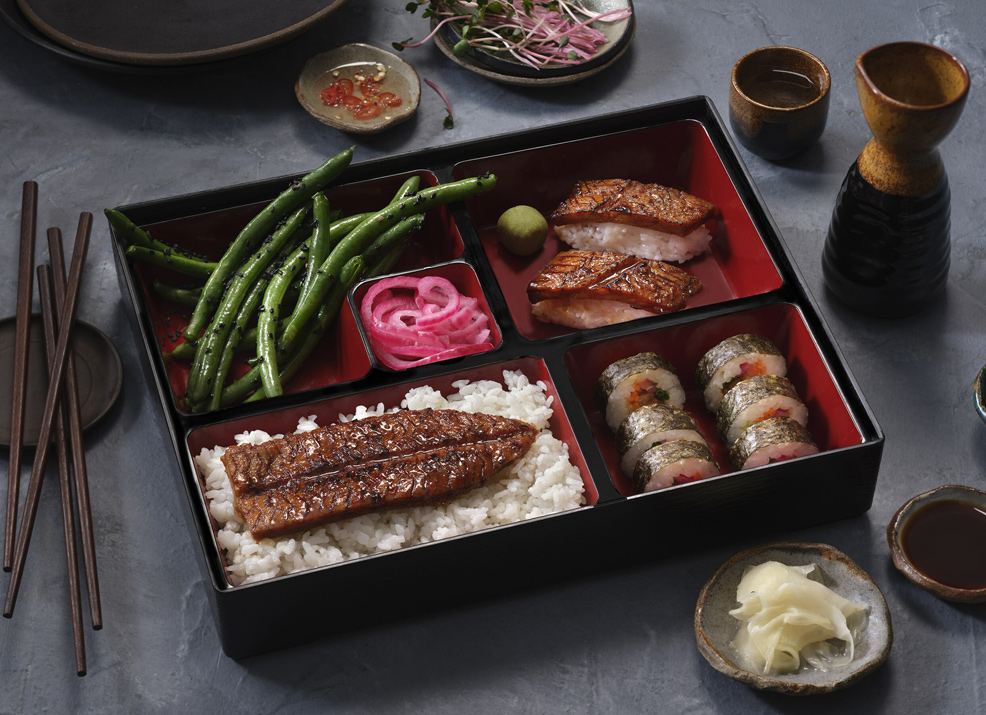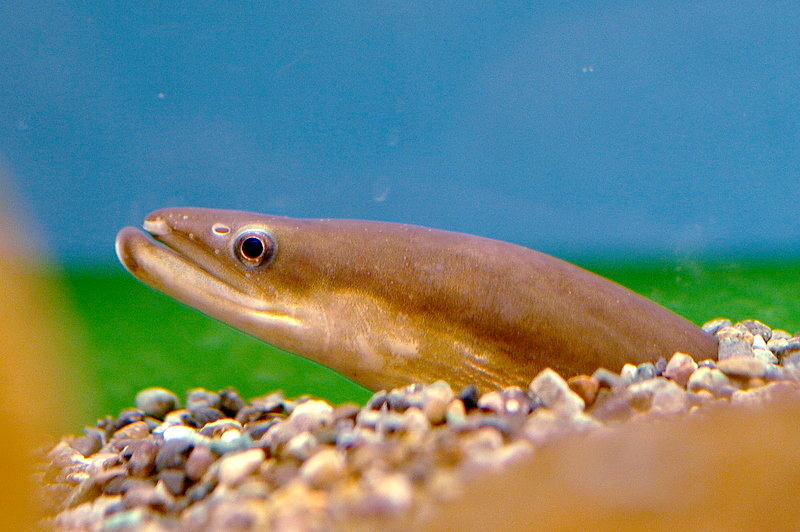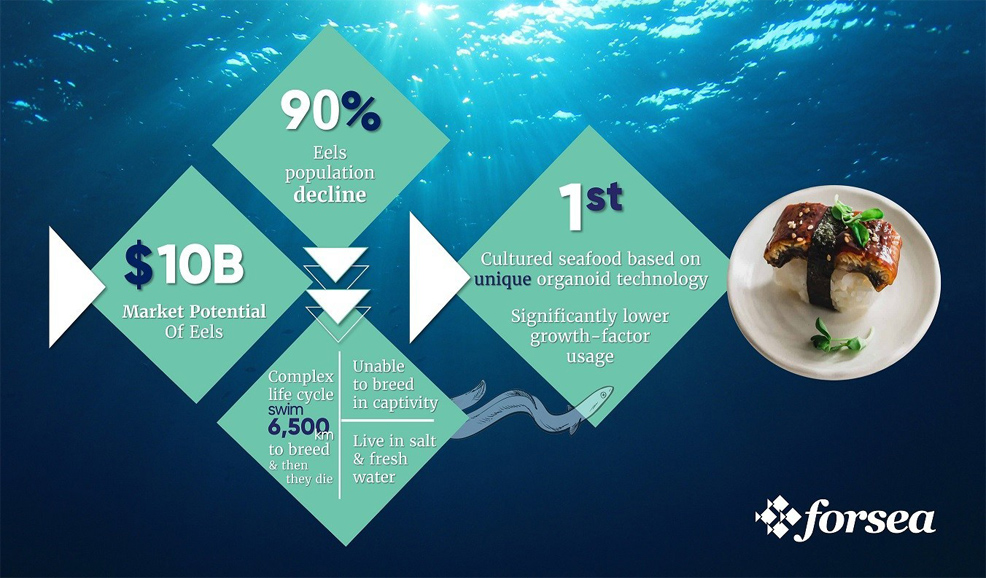
27th January 2024 World's first cultured eel Israeli startup Forsea Foods is on a mission to save wild eel populations from extinction by developing cell-cultured seafood.
Following the recent news that Israel approved the sale of lab-grown meat, another startup in the country has just unveiled its first prototype of a cell‑cultivated freshwater eel. The Japanese eel (Anguilla japonica) is native to East Asia, where it has long been a significant cultural and culinary icon – particularly in Japan, where it accounts for 95% of commercially sold eel – and is a staple in many traditional dishes. However, its habitat is under severe threat due to overfishing, pollution, and other impacts. These eels have a complex life cycle, migrating over vast distances from their freshwater homes to spawn in the ocean, a journey that makes them particularly vulnerable to ecological disruptions. The animal is now classed as Endangered by the International Union for Conservation of Nature, based on its most recent assessment conducted in 2018.
Forsea Foods, an Israeli startup founded in 2021, has been working with Katsumi Kusumoto, a celebrated chef who runs the vegan restaurant SAIDO in Tokyo, voted the world's best vegan restaurant in 2019 by online restaurant guide, Happy Cow. Having developed its new cellular aquaculture technique, the company asked Kusumoto to create two popular traditional Japanese dishes – unagi kabayaki (marinated grilled eel over rice) and unagi nigiri. "Unagi is an enduring favourite in Japan," said Kusumoto. "Its timeless appeal, however, is impacted by a growing awareness among the Japanese population of the need to take a more sustainable approach. It's been a thrilling journey to join forces with emerging innovators, and working together to deliver the traditional unagi indulgence with a clear eco-conscience." Forsea's unique and proprietary method involves the use of organoid technology to craft 3D microtissues composed of fat and muscle. These spontaneously differentiate into edible cells, mimicking the natural process of cell formation. The cell lines self-organise into tissues without the need for scaffold support – simplifying the production process, reducing costs, and enhancing scalability. In addition to helping with animal conservation, Forsea's cell-cultivated eel provides a nutritious alternative that is 100% free from any antibiotics, hormones, or ocean pollutants. "This milestone marks a major leap in our journey to deliver delicious, cultured seafood products," said Roee Nir, Forsea co-founder and CEO. "Forsea is pioneering the fusion of traditional, high-quality Asian cuisine with groundbreaking technology to create the world's first cultured unagi – one that will provide the consumer with a genuine seafood experience without putting further strain on aquatic life." To accelerate progress, Forsea has recently expanded its team – forming new engineering and food application departments – and has appointed a new business development manager in Japan to cement its presence in the Asian food market. Forsea is planning the commercial launch of its product in 2025 and may also expand into the EU and US markets.
Comments »
If you enjoyed this article, please consider sharing it:
|
||||||









